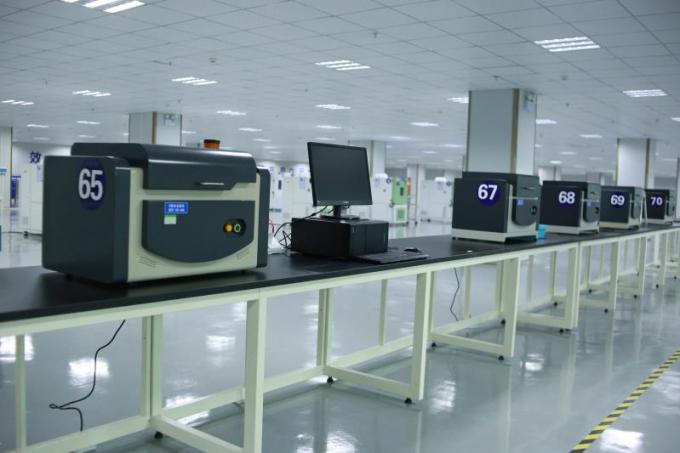KingPo’s Global Impact: How They’re Powering Testing Labs Across the World

In the fast-paced world of technological advancements, testing plays a critical role in ensuring that devices and systems function as expected. From safety to performance and durability, testing is essential in various industries, including electronics, healthcare, automotive, and manufacturing. But what makes testing reliable and accurate? It all comes down to the tools and equipment that power the testing process. Testing labs around the world are heavily reliant on top-tier testing equipment to carry out precise and efficient testing, ensuring that products meet the highest standards. This is where the impact of leading companies in the testing industry is felt globally.
Across industries, the importance of advanced, accurate, and reliable test equipment cannot be overstated. From environmental tests to electrical measurements, the tools used in labs ensure product integrity, safety, and overall quality. As technology evolves, so does the need for testing labs to adopt new and advanced equipment to keep up with modern demands. Innovations in testing technologies, combined with the right testing solutions, provide labs the ability to push the boundaries of what can be tested. By enhancing the performance and capabilities of these labs, businesses can meet the ever-growing need for product validation, making testing equipment integral to all industries.
The Role of Test Equipment in Ensuring Product Safety
Testing equipment is more than just tools; they are gatekeepers ensuring that products meet the safety and quality standards set by various regulatory bodies. From pharmaceuticals to automotive, the risks of poorly tested products can have disastrous consequences. As such, advanced testing tools are critical in verifying that products comply with the necessary regulations before they reach consumers. For instance, test equipment used in electrical testing ensures that electronic products do not pose a risk of fire or electric shock. Additionally, precision test equipment helps guarantee that medical devices operate at optimal levels, preventing accidents or malfunctions during critical procedures. Test Equipment is often designed with the latest technologies to provide the highest level of precision, which is crucial in these sensitive sectors.
The development of testing equipment has made it easier for industries to meet stringent safety standards. These tools allow for comprehensive testing, including stress tests, endurance testing, and failure analysis. In industries like the automotive sector, test equipment checks various systems in vehicles, such as airbags, braking systems, and engine performance, to ensure safety and quality. Without the use of reliable testing tools, manufacturers would face immense challenges in safeguarding consumers from unsafe products. The quality and reliability of testing equipment directly contribute to the quality and reliability of the end product, making it an indispensable component of product development.
Improving Efficiency and Productivity in Testing Labs
Efficiency in testing labs is paramount. Testing procedures can be time-consuming and resource-intensive, especially when the equipment used is outdated or inefficient. However, technological advancements in test equipment have drastically improved the efficiency of testing processes across the globe. Faster testing cycles, higher throughput, and more accurate results have all been made possible due to innovations in test equipment.
With automated testing systems, labs can test multiple parameters simultaneously, reducing human error and increasing productivity. For example, modern equipment allows for quicker batch testing, enabling labs to perform tests on a larger number of samples in less time. This increased efficiency not only saves valuable time but also reduces operational costs for businesses, allowing them to allocate resources to other critical areas of their operations.
Automation is one of the most significant factors contributing to the overall efficiency of testing labs. Automated systems help eliminate repetitive tasks and increase the speed at which data can be gathered, analyzed, and reported. When testing equipment is connected to data management systems, the data can be automatically recorded and tracked, eliminating manual data entry errors and enhancing traceability. This level of automation also helps to maintain the consistency and accuracy of tests, leading to better outcomes and faster results.
The Global Reach of Testing Labs and Their Impact on Various Industries
The influence of testing labs goes far beyond local regions; they serve a global purpose, impacting industries across the world. Whether it’s a new mobile phone being tested for electromagnetic interference or a new drug undergoing clinical trials, testing labs are essential in ensuring global standards are met. They allow companies to operate with confidence, knowing that their products have passed rigorous checks before they reach international markets.
As businesses grow and expand globally, the demand for testing labs that can support various regulatory and market standards also grows. For example, in Europe, there are specific safety standards for electronic devices, while the United States might have different criteria for the same products. This international variation is why testing labs around the world must have flexible and adaptive test equipment to meet different country-specific requirements.
Moreover, the global expansion of industries such as pharmaceuticals, aerospace, and renewable energy means that testing equipment and labs are required to keep pace with a rapidly changing landscape. Testing tools need to handle new materials, technologies, and processes that may not have been in existence just a few years ago. Without a robust testing infrastructure, many global industries would struggle to maintain the level of precision required to ensure quality, safety, and compliance.
Future of Test Equipment: Innovations and Emerging Trends
The future of test equipment is bright, with continuous advancements on the horizon. One of the most exciting areas of development is the rise of artificial intelligence (AI) and machine learning (ML) in testing technologies. These innovations have the potential to revolutionize how testing is performed, improving both the accuracy and speed of results.
AI-powered testing systems can analyze vast amounts of data in real-time, identifying trends and potential issues that human testers might miss. Machine learning algorithms can predict the likelihood of product failure based on historical data, helping manufacturers make informed decisions early in the production process. The combination of AI and advanced test equipment promises to dramatically reduce testing times and improve the overall quality control process.
Another area of growth is in the Internet of Things (IoT). The IoT allows for devices to communicate with each other and send data in real-time. Test equipment that integrates with IoT devices can provide valuable insights into the performance of a product, allowing testing labs to monitor products remotely and test them more thoroughly. This interconnected system will help to optimize testing procedures and enhance data collection capabilities.
As new industries emerge and existing ones evolve, the demand for more specialized test equipment will continue to increase. Whether it’s testing electric vehicles, renewable energy systems, or complex medical devices, the future of test equipment lies in its adaptability, innovation, and ability to meet the unique demands of an ever-changing world.
Conclusion
The global impact of testing labs and their associated equipment is undeniable. From ensuring product safety to increasing operational efficiency and meeting international standards, testing equipment is the backbone of modern industries. The role of testing labs is integral in ensuring that products meet the highest standards of quality, safety, and performance. As technology continues to evolve, the testing landscape will continue to innovate, with new trends and advancements shaping the future of testing.
With continuous advancements in technology, it’s clear that testing equipment will remain an essential component in product development. The continued global reach of testing labs highlights the importance of staying ahead of the curve when it comes to technology, ensuring that testing procedures are efficient, precise, and adaptable to an ever-changing global market.
For more information on cutting-edge testing solutions, visit https://www.kingpodg.com/.

